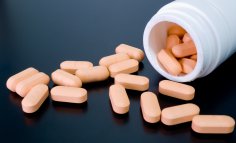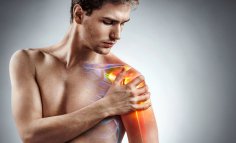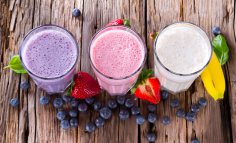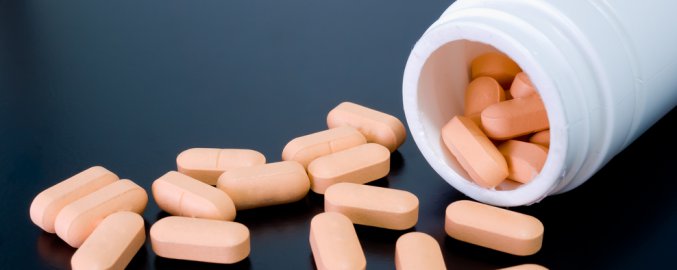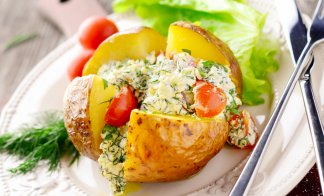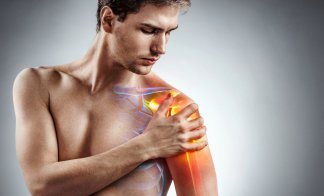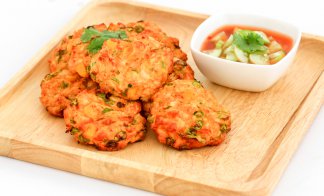Fra Faktaposten om proteiner, karbohydrater og fett:
"Mettet fett
Man finner mettet fett i mat fra dyreriket, som for eksempel smør, fløte, ost, pølse, og flesk. Hvis en spiser mye mettet fett, så økes innholdet av fettstoffet kolesterol i blodet. Kolesterol kan feste seg i blodårene og dermed føre til at blodårene tettes til etter som tiden går. Dette kaller en for åreforkalkning. Om dette skjer i blodårene i hjertet, kan det føre til hjertekrampe og hjerteinnfarkt. Hvis det skjer i hjernen, kalles dette for hjerneslag.
Flerumettet og enumettet fett
Man får flerumettet fett blant annet fra fet fisk, tran og soyaolje. Dette er en hel del sunnere enn mettet fett. Det beste for helsen er enumettet fett. Det er fordi det motvirker åreforkalkning. Man kan finne denne typen fett blant annet i olivenolje og rapsolje. I de landene hvor det brukes mye olivenolje, som for eksempel i landene rundt Middelhavet Da kan dette være en forklaring på at sykdom som hjerteinnfarkt er mindre vanlig der enn her i Norge. Kina er også et eksempel på dette."
Dette er helt på linje med det som norske og andre vestlige helsemyndigheter anbefaler, men er det nå virkelig sant? Jeg har vært inne på emnet om det store karbohydratinntaket vi i Norge har, på bekostning av fettinntak (spesielt mettet fett), i andre poster. Det er interessant å diskutere dette emnet, spesielt i lys av den stadig større motstanden til den "politisk korrekte" oppfatningen av maten vi spiser.
Fra artikkel av Mary Enig, PhD og Sally Fallon:
The Dangers Of Polyunsaturates
The public has been fed a great deal of misinformation about the relative virtues of saturated fats versus polyunsaturated oils. Politically correct dietary gurus tell us that the polyunsaturated oils are good for us and that the saturated fats cause cancer and heart disease. The result is that fundamental changes have occurred in the Western diet.
At the turn of the century, most of the fatty acids in the diet were either saturated or monounsaturated, primarily from butter, lard, tallows, coconut oil and small amounts of olive oil. Today most of the fats in the diet are polyunsaturated from vegetable oils derived mostly from soy, as well as from corn, safflower and canola.
Modern diets can contain as much as 30% of calories as polyunsaturated oils, but scientific research indicates that this amount is far too high. The best evidence indicates that our intake of polyunsaturates should not be much greater than 4% of the caloric total, in approximate proportions of 2 % omega-3 linolenic acid and 2 % omega-6 linoleic acid.30
EFA consumption in this range is found in native populations in temperate and tropical regions whose intake of polyunsaturated oils comes from the small amounts found in legumes, grains, nuts, green vegetables, fish, olive oil and animal fats but not from commercial vegetable oils.
Excess consumption of polyunsaturated oils has been shown to contribute to a large number of disease conditions including increased cancer and heart disease; immune system dysfunction; damage to the liver, reproductive organs and lungs; digestive disorders; depressed learning ability; impaired growth; and weight gain.31
One reason the polyunsaturates cause so many health problems is that they tend to become oxidized or rancid when subjected to heat, oxygen and moisture as in cooking and processing. Rancid oils are characterized by free radicals-that is, single atoms or clusters with an unpaired electron in an outer orbit. These compounds are extremely reactive chemically.
They have been characterized as "marauders" in the body for they attack cell membranes and red blood cells and cause damage in DNA/RNA strands, thus triggering mutations in tissue, blood vessels and skin. Free radical damage to the skin causes wrinkles and premature aging; free radical damage to the tissues and organs sets the stage for tumors; free radical damage in the blood vessels initiates the buildup of plaque.
Is it any wonder that tests and studies have repeatedly shown a high correlation between cancer and heart disease with the consumption of polyunsaturates?32 New evidence links exposure to free radicals with premature aging, with autoimmune diseases such as arthritis and with Parkinson's disease, Lou Gehrig's disease, Alzheimer's and cataracts.33
Too Much Omega-6
Problems associated with an excess of polyunsaturates are exacerbated by the fact that most polyunsaturates in commercial vegetable oils are in the form of double unsaturated omega-6 linoleic acid, with very little of vital triple unsaturated omega-3 linolenic acid.
Recent research has revealed that too much omega-6 in the diet creates an imbalance that can interfere with production of important prostaglandins.34 This disruption can result in increased tendency to form blood clots, inflammation, high blood pressure, irritation of the digestive tract, depressed immune function, sterility, cell proliferation, cancer and weight gain.35
Too Little Omega-3
A number of researchers have argued that along with a surfeit of omega-6 fatty acids the American diet is deficient in the more unsaturated omega-3 linolenic acid. This fatty acid is necessary for cell oxidation, for metabolizing important sulphur-containing amino acids and for maintaining proper balance in prostaglandin production. Deficiencies have been associated with asthma, heart disease and learning deficiencies.36
Most commercial vegetable oils contain very little omega-3 linolenic acid and large amounts of the omega-6 linoleic acid. In addition, modern agricultural and industrial practices have reduced the amount of omega-3 fatty acids in commercially available vegetables, eggs, fish and meat. For example, organic eggs from hens allowed to feed on insects and green plants can contain omega-6 and omega-3 fatty acids in the beneficial ratio of approximately one-to-one; but commercial supermarket eggs can contain as much as nineteen times more omega-6 than omega-3!37
The Benefits Of Saturated Fats
The much-maligned saturated fats-which Americans are trying to avoid-are not the cause of our modern diseases. In fact, they play many important roles in the body chemistry:
Saturated fatty acids constitute at least 50% of the cell membranes. They are what gives our cells necessary stiffness and integrity.
They play a vital role in the health of our bones. For calcium to be effectively incorporated into the skeletal structure, at least 50% of the dietary fats should be saturated.38
They lower Lp(a), a substance in the blood that indicates proneness to heart disease.39 They protect the liver from alcohol and other toxins, such as Tylenol.40
They enhance the immune system.41
They are needed for the proper utilization of essential fatty acids. Elongated omega-3 fatty acids are better retained in the tissues when the diet is rich in saturated fats. 42
Saturated 18-carbon stearic acid and 16-carbon palmitic acid are the preferred foods for the heart, which is why the fat around the heart muscle is highly saturated.43 The heart draws on this reserve of fat in times of stress.
Short- and medium-chain saturated fatty acids have important antimicrobial properties. They protect us against harmful microorganisms in the digestive tract.
The scientific evidence, honestly evaluated, does not support the assertion that "artery-clogging" saturated fats cause heart disease.44 Actually, evaluation of the fat in artery clogs reveals that only about 26% is saturated. The rest is unsaturated, of which more than half is polyunsaturated.45
What About Cholesterol?
And what about cholesterol? Here, too, the public has been misinformed. Our blood vessels can become damaged in a number of ways-through irritations caused by free radicals or viruses, or because they are structurally weak-and when this happens, the body's natural healing substance steps in to repair the damage.
That substance is cholesterol. Cholesterol is a high-molecular-weight alcohol that is manufactured in the liver and in most human cells. Like saturated fats, the cholesterol we make and consume plays many vital roles:
Along with saturated fats, cholesterol in the cell membrane gives our cells necessary stiffness and stability. When the diet contains an excess of polyunsaturated fatty acids, these replace saturated fatty acids in the cell membrane, so that the cell walls actually become flabby.
When this happens, cholesterol from the blood is "driven" into the tissues to give them structural integrity. This is why serum cholesterol levels may go down temporarily when we replace saturated fats with polyunsaturated oils in the diet.46
Cholesterol acts as a precursor to vital corticosteroids, hormones that help us deal with stress and protect the body against heart disease and cancer; and to the sex hormones like androgen, testosterone, estrogen and progesterone.
Cholesterol is a precursor to vitamin D, a very important fat-soluble vitamin needed for healthy bones and nervous system, proper growth, mineral metabolism, muscle tone, insulin production, reproduction and immune system function.
The bile salts are made from cholesterol. Bile is vital for digestion and assimilation of fats in the diet.
Recent research shows that cholesterol acts as an antioxidant.47 This is the likely explanation for the fact that cholesterol levels go up with age. As an antioxidant, cholesterol protects us against free radical damage that leads to heart disease and cancer.
Cholesterol is needed for proper function of serotonin receptors in the brain.48 Serotonin is the body's natural "feel-good" chemical. Low cholesterol levels have been linked to aggressive and violent behavior, depression and suicidal tendencies.
Mother's milk is especially rich in cholesterol and contains a special enzyme that helps the baby utilize this nutrient. Babies and children need cholesterol-rich foods throughout their growing years to ensure proper development of the brain and nervous system.
Dietary cholesterol plays an important role in maintaining the health of the intestinal wall.49 This is why low-cholesterol vegetarian diets can lead to leaky gut syndrome and other intestinal disorders.
Cholesterol is not the cause of heart disease but rather a potent antioxidant weapon against free radicals in the blood, and a repair substance that helps heal arterial damage (although the arterial plaques themselves contain very little cholesterol.)
However, like fats, cholesterol may be damaged by exposure to heat and oxygen. This damaged or oxidized cholesterol seems to promote both injury to the arterial cells as well as a pathological buildup of plaque in the arteries.50 Damaged cholesterol is found in powdered eggs, in powdered milk (added to reduced-fat milks to give them body) and in meats and fats that have been heated to high temperatures in frying and other high-temperature processes.
High serum cholesterol levels often indicate that the body needs cholesterol to protect itself from high levels of altered, free-radical-containing fats. Just as a large police force is needed in a locality where crime occurs frequently, so cholesterol is needed in a poorly nourished body to protect the individual from a tendency to heart disease and cancer. Blaming coronary heart disease on cholesterol is like blaming the police for murder and theft in a high crime area.
Poor thyroid function (hypothyroidism) will often result in high cholesterol levels. When thyroid function is poor, usually due to a diet high in sugar and low in usable iodine, fat-soluble vitamins and other nutrients, the body floods the blood with cholesterol as an adaptive and protective mechanism, providing a superabundance of materials needed to heal tissues and produce protective steroids. Hypothyroid individuals are particularly susceptible to infections, heart disease and cancer.51

